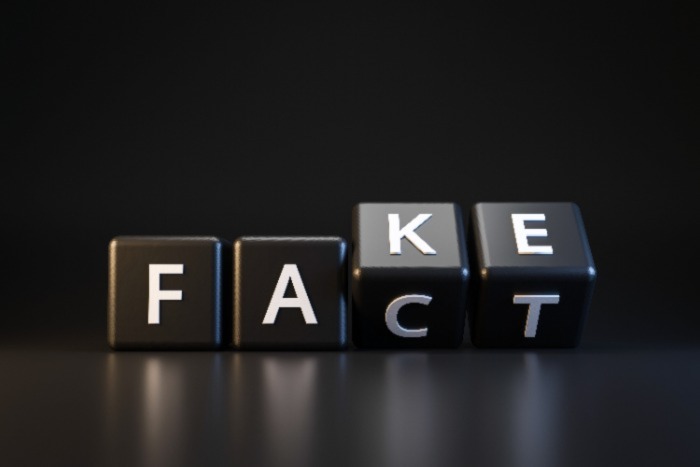
Myth: Brushing Harder Means Cleaner Teeth
Brushing your teeth thoroughly is an essential part of a successful health regimen. That being said, people often tend to think that the harder your brush, the cleaner your teeth will be. However, this is not the case. While brushing and washing a dirty plate may get it cleaner, your mouth is much more sensitive than kitchenware. Brushing your teeth too hard could deteriorate your enamel and result in discoloration and increased sensitivity. Aggressive brushing can also damage your gums and potentially cause them to bleed. We recommend using a soft-bristled toothbrush and applying a mild amount of pressure when brushing your teeth.
Myth: It Doesn’t matter When You Brush Your Teeth
Not only is it important to brush twice a day, the time of day at which you brush your teeth has an impact on your overall oral health. Throughout the day the flow of saliva in our mouths is high and provides a cleansing effect. This effect doesn’t occur at night, when our salivary glands produce less saliva. In addition, people with dry mouths tend to have more cavities because their mouths have less saliva to naturally wash away food particles. When we don’t brush our teeth before bed, food particles sit on our teeth during the entire night and contribute to the decay of teeth over time. Because of this, brushing before bed is very important. Brushing in the morning also helps fight decay and eliminate bad breath.
Myth: Dental X-Rays Can Be Dangerous
Contrary to what some may think, dental x-rays are actually safe. While a dental x-ray will expose you to radiation, the amount of radiation exposure may surprise you. One plane flight across the country results in more radiation exposure than one x-ray. In addition, the amount of radiation exposure in an x-ray is equivalent to the radiation exposure when eating ten bananas! Thus, we would argue that the benefits of a dental x-ray outweigh the risks. Dental x-rays are valuable because they can show changes in dental tissue to your dentist. This will help your dentist identify conditions such as gum disease and cavities.
Myth: Primary Teeth Are Not Permanent, Therefore You Don’t Need To Take Care Of Them
Believe it or not, baby teeth are important. They make the spaces where permanent teeth line up underneath the gums and come in properly. If cavities in baby teeth are not addressed immediately they can cause tooth loss much earlier than desired, resulting in a gap. It is important to make sure that your child’s teeth are as healthy as possible. If your child doesn’t brush or floss their baby teeth, the odds are increased that they won’t brush or floss their permanent teeth. This will lead to more severe and expensive dental issues as they age.
Myth: Pregnant Mothers Should Not Go To The Dentist
Some soon-to-be mothers may have reservations about seeing the dentist. However, it can be important to see the dentist while pregnant. Women show an increased risk of gum disease during pregnancy. In addition, up to 50% of women develop gingivitis at some point during their pregnancy. It is important for women to be extra diligent about their oral health while pregnant and not skip their regular appointments or cleanings. Emergency dental procedures are safe during pregnancy, however, cosmetic work should be delayed until after birth.
Myth: Oral Health Is Not Related To Body Health
Your mouth is home to both harmful and useful bacteria. Your oral health will determine the health of the rest of your body to a degree, as your mouth is an entry for harmful bacteria. If you neglect the health of your teeth, you make your body vulnerable to a number of different diseases such as cardiovascular disease, endocarditis, and pneumonia.
Myth: Bleaching Is Bad For Your Teeth
When teeth whitening first became popular, many people considered bleaching to be harmful to their teeth. At the time, the acidic nature of bleaching would dissolve protective enamel, leaving your teeth vulnerable to cavities and tooth decay. This is not the case anymore. Dentists use safe non-acidic bleaching methods that help whiten your teeth making modern teeth whitening safe and effective.
Myth: Eating A Lot Of Sugar Causes Cavities
We all know that eating sugar is very bad for your teeth. That being said, is it always bad and to what degree is it bad? The fact is, sugar in and of itself is not the cause of cavities and tooth decay. The amount of time that sugar remains in the mouth is the real cause of this deterioration. Sugars that are put in your mouth cause bacteria to produce acids that will eat away at your tooth enamel over time, making your teeth more vulnerable to cavities. Your saliva, as well as regularly brushing and flossing your teeth, will remove these sugars and help protect and repair your enamel.
Myth: Diet Or Sugar-Free Sodas Are Safe For Your Teeth
While diet sodas don’t contain sugars that cause cavities, they still are very acidic. Our mouth is full of bacteria that use acids to contribute to cavities. The acids in diet sodas can potentially eat away at your enamel and cause teeth sensitivity. In addition, many people tend to drink soda throughout the day, which is more hazardous. Each time you take a sip, the bacteria in your mouth begins to interact with the acid and attack your enamel. After that sip, it takes over twenty minutes for your mouth to neutralize the acid again. In addition to soda, other acidic beverages like orange juices and citrus juices can cause similar damage. We recommend that you use water, vegetable juice, and milk to hydrate as often as possible.
Myth: As You Age, Teeth Become Less Healthy
Aging isn’t a factor that automatically results in poorer oral health. If you take care of your teeth well throughout life, you will still have healthy teeth when you are a senior. If you don’t take care of your teeth as you age, your oral health will deteriorate. Similarly, if you are young and you don’t take care of your teeth, your oral health will not necessarily be healthy. By maintaining an effective dental routine and visiting your dentist regularly, you can maintain excellent oral health. As you age, your dental routine may need to change, so make sure you check with your dentist to assure you are taking proper care of your teeth.
Myth: You Only Need To Go To The Dentist If Your Teeth Hurt
It is often better to prevent a problem than look for the cure when possible. Diagnosing and coming up with a solution for a tooth problem early on can be much easier and more cost-effective than if it were addressed later. If you aren’t experiencing dental pain, it is still recommended to see your dentist twice each year for regular cleanings and exams. Prevention can save you pain and money in the long-run.
